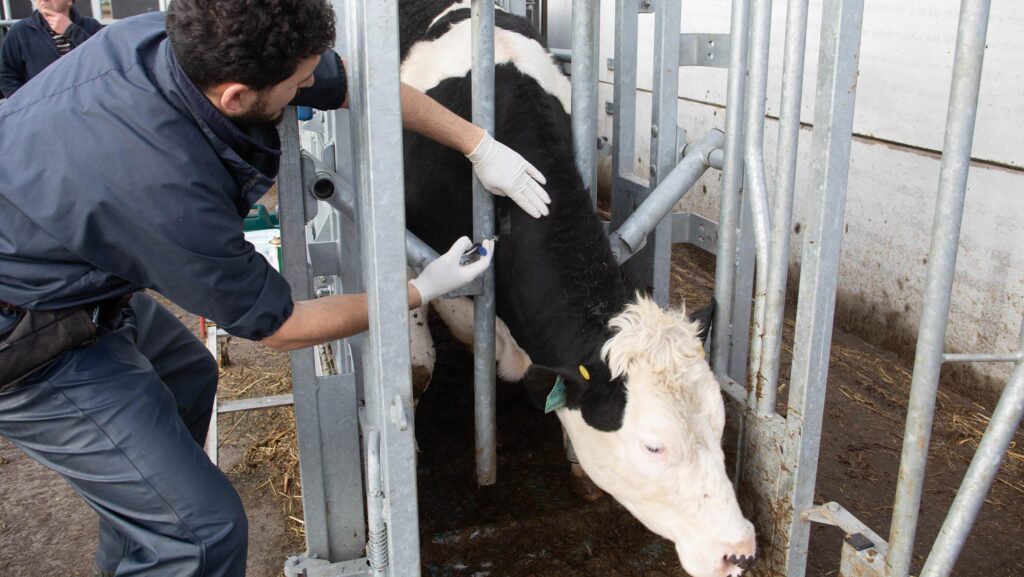Vaccination is no silver bullet for TB control, say experts
 © Tim Scrivener
© Tim Scrivener Cattle vaccination can play an important role in the fight against bovine TB, but must not be seen as a “silver bullet”, according to industry experts.
Vaccination trials are currently ongoing, and it is expected that a vaccine and supporting test will be available by 2029.
Prof Charles Godfrey, author of the Godfray Bovine TB Evidence Review for England, commissioned by the Labour government, told the AberTB conference at Aberystwyth University on Wednesday (17 September) that the cattle BCG vaccine is “the only show in town” and must be considered for use in problem herds once it is licensed.
See also: New bovine TB review backs flexible farm testing
“Once a BCG vaccine is licensed, even if a Diva test isn’t available, we may be able to use it in the most problematic herds.
“If it was considered in high risk and edge areas in the UK, it would be one of the largest interventions that the country has ever done,” he said.
No silver bullet
Dr Jim Hopkins, Iechyd Da and Wales Veterinary Science Centre director and director at Steffan and priory vets, added that while vaccination is a significant tool, it won’t provide an immediate solution.
“There’s no silver bullet that’s going to sort this, but vaccination is going to be a big tool in our toolbox,” he said.
“The disease is complex, but the key to solving it is all working together.
“So vets working with farmers, but also working with Apha and the Welsh government, all together, hopefully on the same page, in the same place, and it’s going to take time.”
Slow progress
“As a farmer, it’s exciting that potentially something could help our fight towards eradicating TB, but we’ve heard this for a very long time in relation to vaccination,” said Pembrokeshire dairy farmer and NFU Cymru TB focus group chairman Roger Lewis.
“The vaccine we know is ready, but the Diva test, which distinguishes vaccinated and unvaccinated reactors, is remaining problematic.
“We’ve heard timelines of four years here, but we’ve heard that all before.”
Vaccine trials
The BCG cattle vaccine was used in herds in the UK in the 1950s and helped to remove infection, Prof James Wood said, but it was withdrawn as it was slower than the standard skin test.
“And so we stopped learning about BCG and we stopped using it,” he added.
Previous cost-benefit analysis suggested that a successful trial and rollout of vaccination would lead to a net cost of the order of £2bn over 10 years and government had lost interest.
“Work since then has been slow and was done without political urgency,” he said, though he was encouraged by progress made in recent trials.
BCG cattle vaccine trials conducted in Ethopia, he added, showed promising results to protect cattle from infection (60%) and reduce infectiousness (75%), though use in the UK is still some time away.
“We won’t be able to use the cattle BCG and Diva until we’ve had market authorisation and that’s going to take some time and delay things,” he added.
